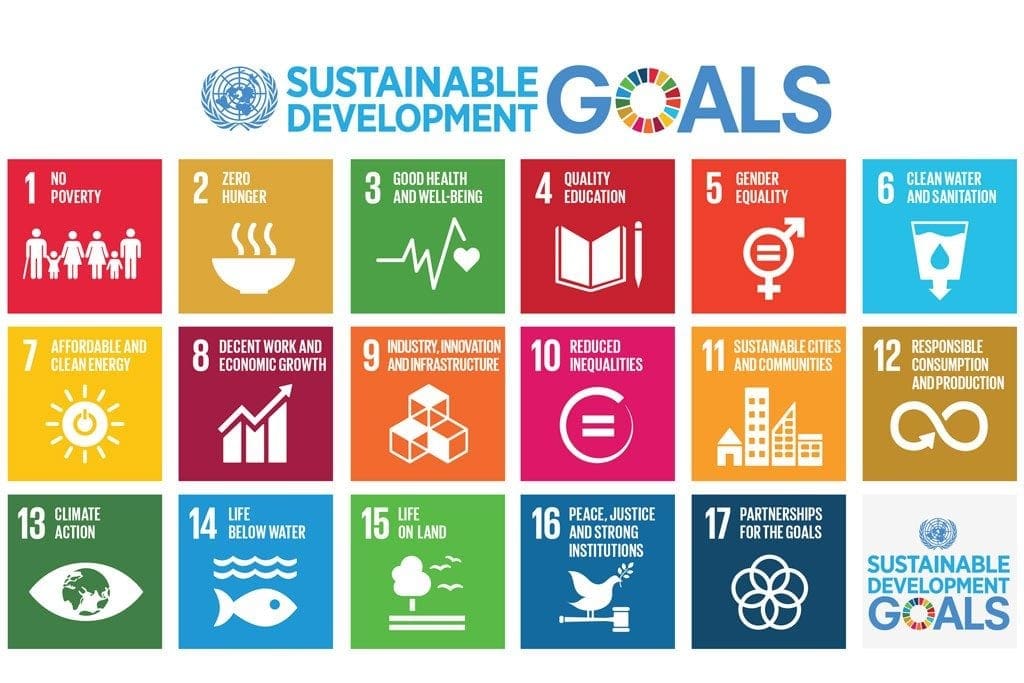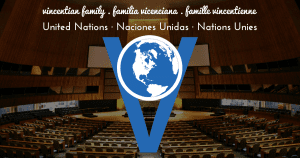
How Can the Vincentian Family Embrace the Global Utopia, the Agenda of the Common Good?
“REDUCE INEQUALITY WITHIN AND AMONG COUNTRIES” (SDG 10)
If we, the Vincentian Family, want to meaningfully contribute to the global agenda, we need to embrace the challenge of the Sustainable Development Goals (UN 2030 Agenda) from a human rights perspective. Together with you, I would like to reflect on the transcendence of Goal 10 for this agenda and for the new world we want for the people and communities that for so long have been left behind…
- An inclusive sustainable economic growth will only be possible if wealth is shared and income inequality is addressed…” (Transforming our world: the 2030 Agenda for Sustainable Development. Resolution 70/01 adopted by the UN General Assembly, 25 September 2015)
- “There’s been class welfare going on for the last twenty years and my class has won” (Warren Buffett, US business magnate and world’s third richest person, September 2011)
- “Disparity brings division… A greater concentration of wealth could –if unchecked- even undermine the principles of meritocracy and democracy. It could undermine the principle of equal rights proclaimed in the 1948 Universal Declaration of Human Rights. (Christine Lagarde, Managing Director, International Monetary Fund, May 2014)
- “Inequality is not just an economic issue, but one of human rights. There are limits to the degree of inequality that can be reconciled with notions of equality, dignity and commitments to human rights for everyone. Extreme inequality is the antithesis of human rights. (Philip Alston, UN Special Rapporteur on Extreme Poverty and Human Rights, October 2015).
The UN 2030 agenda is technically a UTOPIA. I would like to define utopia as a call from a possible future to which we commit together. The Gospel is a Utopia too. Pope Francis made clear, in Laudato SI, the connection between the Utopia of a new world and the utopia of the Gospel. Most probably many of the 17 goals, if not all of them, on the UN agenda, won’t be fully accomplished by 2030. But, we know with certainty that these goals mark the direction that we all, the entire humanity, need to walk towards, to defend the very existence of life in our planet. The challenges that these goals present for us are innumerous. Let me share with you one of the challenges we consider more important to really advance the agenda of the common good as I would like to call the UN 2030 agenda.
When analyzing the UN Sustainable Development Goals as a holistic agenda to eradicate poverty and hunger, foster human development, human rights, and peace, and ensure environment and ecosystems’ health, ‘the reduction of inequalities within and among countries’ (SDGs goal 10) becomes very relevant.
This agenda is based on the premise of goal setting for development on a global scale. If we as a global society have agreed on what kind of world we want to live in, a world in which the outrageous calamities caused by extreme poverty, climate change, and wars are not to be tolerated, then it is crucial that we also determine how to get there. We know that the economic and the technological gap between the poor and the rich is growing even more scandalously nowadays. Very little has changed in this area of work over the last decades… inequality has become both a symptom and a cause of the humanitarian and the ecological crisis.
Some might argue that the reduction of inequalities is an independent mechanism (goal) from humanitarian and sustainable development agendas. However, even though there are not many, some experts that make a living within this process argue that reducing inequalities ought to be a core issue if we really want to significantly reduce misery and protect the environment. The life style of a small percentage of our humanity plays a critical role in the development of the agenda of the common good.
The process according to these pundits is far from ideal when it comes to solving systemic issues. Systems theories emphasize the centrality of a holistic approach. Sustainable Development is no different and is indeed one of the most complex systems upon which we must contemplate in our time, and our humanity depends on it. When we fail to consider the intractable connection between extreme richness and extreme poverty, we miss the point of what sustainable development ought to be. Human life is on the line in times of crisis… poverty is the main reason! Some governments still think that poverty and environmental degradation can be addressed “later.”
What we are finding in our present societies is a situation where we are not planning for the long-term and are caught in addressing ever-changing short-term calamities. This seems to be a vicious cycle, where the more we fail to invest in sustainable development, the more humanitarian aid will be needed and so on and so forth. This vicious cycle can become a virtuous cycle the moment we start to prioritize sustainable development investments in the less developed areas of the world over any other type of investments, especially the investment on war! If we evaluate the way cities and countries invest their money we understand and explain one of the reasons why the gap between the rich and the poor is growing… If we look at this carefully, we find a core issue to explain why life in our planet is sustainable only for a short period of time.
How can we play a role in the development of the UN agenda, especially goal 10? Below are two recommendations to expand our ministerial style:
- Human rights approach: “Equality and non-discrimination have long been core principles of international human rights law, enshrined in every major human rights convention. The human rights framework makes clear that an approach to development that pays attention only to absolute poverty and basic needs is far from sufficient. Tackling inequalities (of opportunity and outcome) and the systemic discrimination (direct and indirect) that fuel these disparities is also crucial if sustainable development is to serve the full realization of human rights for all, as the 2030 Agenda explicitly sets out to do.” (From Disparity to Dignity – UN Human Rights Policy Brief).
- Advocacy for investment in the areas where we live or develop our projects: As we come to be a Family of Life and Mission, we need to learn to be more political in the way we approach our ministries. ADVOCACY should become an essential piece of the conversation in the Vincentian Family with no more delay! “Opportunities for the poor don’t just pop out of nowhere. They exist because of policy, funding, and in the trenches of grunt work from community-based organizations, activists, and advocates. Much of the real work of providing opportunities for the poor come from ADVOCACY, using relationships with legislators and local officials, with business, with governments agency personnel, with funders, and with the media.”
If the disparity between the rich and the poor and the growing gap between extreme richness and extreme poverty is one of the essential reasons for life in our planet to be less sustainable… what is the Vincentian Family ready to do to be a part of the solution and not a part of the problem?








0 Comments